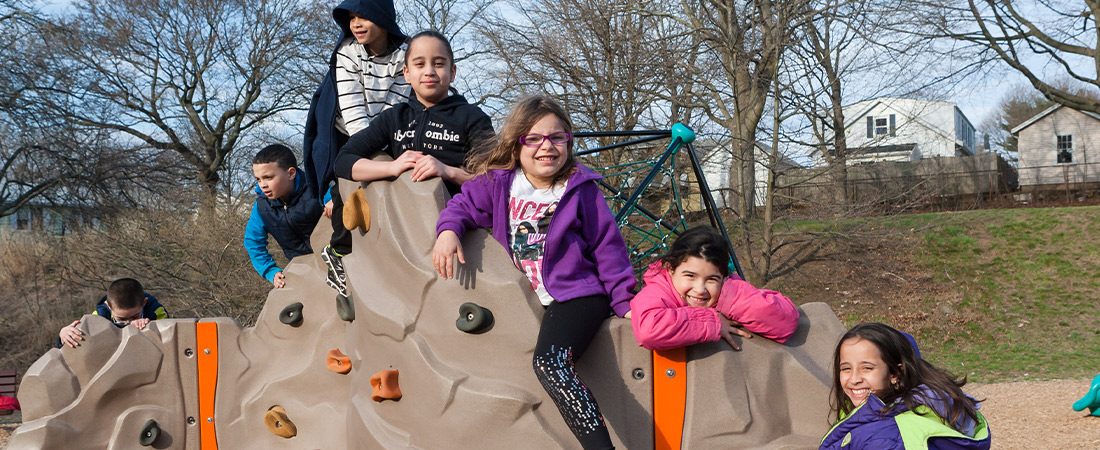
Powerful learning experiences often happen outside of the school day. EDC builds, implements, and evaluates out-of-school and nonformal programs that deliver core civic, educational, and life skills to young people in diverse environments.
In the United States, EDC’s support for out-of-school time (OST) and nonformal learning leverages children’s and youth’s strengths to help them succeed at school, engage in their communities, and lead productive and healthy lives. We design, evaluate, and provide technical assistance on high-quality OST programs that prepare young people for success—whether pursuing social and academic enrichment after school or leaving school and starting a first job.
Internationally, EDC develops and implements programs that support educational and economic opportunities for out-of-school youth. Working within the unique context of each country, we partner with governments, industry, and nongovernmental organizations to provide young people with the skills, knowledge, and opportunities they need to be market-ready and contribute to society.
Related Content
EDC Talks: How Do You Develop High-Quality Out-of-School-Time Programs?
Children can learn a lot from programs that take place outside of school hours.
4 Ways to Strengthen Youth Programs in Conflict and Crisis Areas
Building youth programs in unstable regions can be challenging. Here are four ideas for practitioners.
A Success Story in Senegal
Meet Adama Diedhiou, a participant in EDC’s workforce development program in Senegal.
A Second Chance at School in Mali
In Mali, accelerated education is helping thousands of children get back to school.
3 Ways to Stop the Summer Slide
Want to help kids keep learning this summer? Here are some tips for parents and caregivers.
New Entrepreneurs Launched in Rwanda
EDC’s workforce development efforts in Rwanda are helping young people build the skills for work.
Projects
Resources
Here are a few of our resources on out-of-school learning. To see more, visit our Resources section.
EDC’s Work Ready Now (WRN) delivers effective work readiness preparation to youth around the world. Based on international standards, WRN helps young people in emerging economies develop the soft skills and work readiness skills needed to succeed in earning a living.
The report covers the results of a study that was done of the Akazi Kanoze Youth Livelihoods Project partner organizations.
This program note presents summary findings of an evaluation study of the global Hewlett-Packard Learning Initiative for Entrepreneurs (HP LIFE) program, conducted in China, India, Kenya, Nigeria,
This report summarizes the results of a review, conducted by external experts, of the quality and content of the Out-of-School Literacy Assessment (OLA).
In response to an outbreak of the Ebola virus in Liberia, EDC’s USAID Advancing Youth Project (AYP) developed a set of literacy and numeracy interactive audio instruction (IAI) lessons for radio broadcast.
This study of Interactive Radio Instruction (IRI), written for the World Bank by EDC staff, shows that radio is an accessible and effective tool for active learning inside and outside of the classroom.
This report is part of a series of publications summarizing what is being learned “on the ground” from projects in more than a dozen countries, and is the product of the pilot phase of the first EQ
As Zambia’s out-of-school orphan population soared to 800,000 in 2000, the United States Agency for International Development (USAID) supported the creation of the Taonga Market Interactiv
Developed by EDC, this set of eight briefs outlines research related to the challenges and recommendations for K–12 STEM education.
Work Ready Now (WRN) is a versatile and modular skills curriculum designed to develop youth’s in-demand, transferable work readiness skills used in 28 countries and translated in 21 languages.
